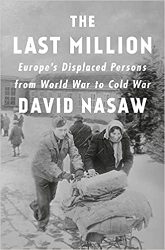Why should we care about the Rothschild family today? Through fascinating archival work, Mike Rothschild (of no relation to the Rothschilds in his book) attempts to answer this question, and he does so quite compellingly — though it makes for sober reading in our current media environment and historical moment.
Rothschild traces the family’s journey from the Frankfurt Ghetto to contemporary London, with detours through Austria, France, South Africa, and the United States. Throughout the book, he links the family to various forms of antisemitism, arguing that “modern Jews are still battling the myths that started in a game of telephone almost two hundred years ago.” Rothschild shows that the history of this family is, to a large degree, the history of global antisemitism. He dissembles the myths about the Rothschilds that have entered popular culture, ranging from their manipulation of the Battle of Waterloo to their supposed orchestration of the American Civil War. Amazingly (and depressingly), Rothschild helps us see how antisemitic currents of thought move from local to global. He traces their flow throughout Europe, the Arab world, and Asia, and onto the bookshelves of readers as different as nineteenth-century Marxists and Osama Bin Laden.
One particularly surprising detail revealed in Rothschild’s historical survey is that the Rothschilds served as an inspiration to many diaspora Jews, who saw in them “a beacon to follow in the dark times created by relentless scapegoating and antisemitism.” In reality, the Rothschilds’ fortune was inseparable from their engagement with European colonial enterprises. Equally surprising is the degree to which the family’s early success and infamy were intertwined with their mastery of communication networks in early modern Europe.
The closer Rothschild gets to our current moment, the more sobering his research becomes. Tracing antisemitic conspiracy theories from the Rothschilds to George Soros, he demonstrates the outsized role that the obsession with this family and their prodigies have played in the emergence of a newly normalized culture of antisemitism in America. He also examines their role in shaping the contemporary Republican party.
Rothschild closes Jewish Space Lasers without discussing the upcoming 2024 election. However, it will be impossible to read this book without the current political strife in the US and the Middle East in mind, particularly as readers grapple with Rothschild’s analysis of nineteenth-century writers like Charles Fourrier, who argued not only that “the Jews be forcibly returned to Palestine,” but that “the bill [be] sent to the House of Rothschild.” This old history is, as Rothschild shows, rearing its ugly head once again.
Joshua Kruchten is an educator and current doctoral candidate at NYU specializing in the literature and history of early modern Europe.





